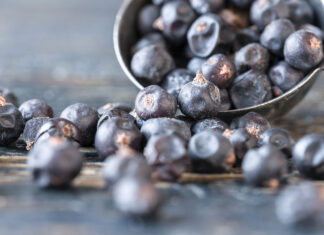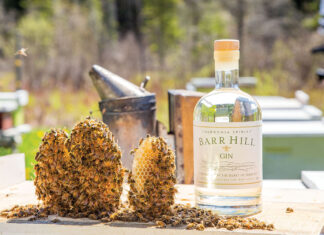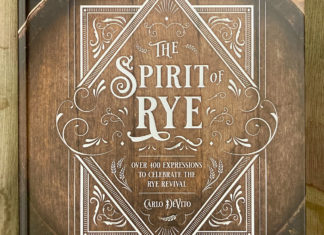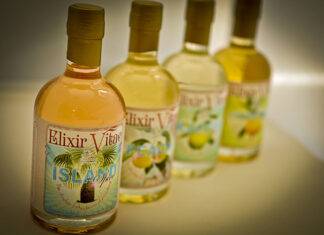Source Juniper Like a Pro
Within gin production we spend a huge amount of time trying to control the variables. This ensures a balanced and consistent product for both the distiller and customer. What follows are some thoughts on achieving consistent results with juniper...
Backyard Botanicals
Ryan Christiansen throws his tractor in reverse as clouds sail over the countryside of central Vermont. He aims the machine’s steel auger into the grass, drilling holes that his teammates fill with long posts. They’re creating a big wood-and-wire...
The Spirit of Rye
Carlo DeVito is a lifelong publishing executive whose clients have included adult beverage authors Kevin Zraly, Matt Kramer, Oz Clarke, Clay Rison, Salvatore Calabrese, Jim Meehan, and other authors such as Stephen Hawking, Dan Rather, Arthur M. Schlesinger Jr.,...
Gin … The “English” Distillate
Gin is one of the most popular distillates of the western world, and was invented, Gunlike other liquors, as a medicine by Dr. Sylvius (Franz de la Böe) in the Netherlands in 1650. The good professor was trying to...
There Is a Shrub in My Drink
When a bartender researches inexpensive ideas for keeping a cocktail program relevant, I recommend they start by revisiting the past. Why? To rediscover ancient flavors, Shrubs have suddenly become popular again, and yet many of the techniques for creating...
Takamaka Distillery
Distilling rum in the Seychelles, a lush, tropical archipelago nation located northeast of Madagascar and about 1,000 miles off the Kenyan coast, comes with a few perks.
Rum can be mixed with the same delectable produce enjoyed by the country’s...
Low Proof, High Impact
Five years ago when longtime San Francisco bartender Eric Ochoa was opening his first bar, Elda, one of his revelations was vermouth from local winemaker and distiller Ian McCarthy's Artemis Spirits served on tap.
Ochoa and McCarthy had gotten to...
Apples Make Delicious Gin
Serious gin drinkers know that most gins begin with a neutral spirit of more than 180 proof. Working on the theory that neutral spirits are tasteless, most gins are also distilled from grains, such as corn or barely. Usually,...













